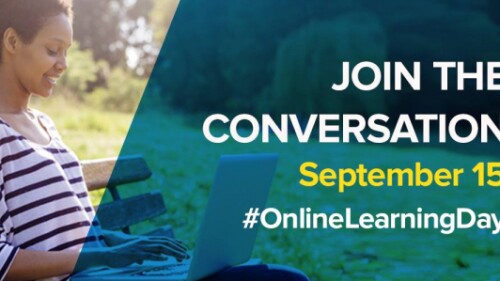Online learning offers the flexibility to pursue your degree on your own terms—but flexibility doesn’t mean it’s easy. To succeed in a digital classroom, it’s not just about having the right tech or time management tools. It starts with the right mindset.
At Kent State Online, we’ve seen that students who adopt a growth-oriented, focused, and proactive attitude tend to thrive in their courses and beyond. Here’s how to cultivate the mindset you need to reach your full potential in an online learning environment.
Understand That Learning Is a Process
The most successful online learners approach education as a journey—not a race. You don’t have to be perfect from day one. Instead, focus on making progress each week and learning from setbacks along the way.
A growth mindset helps you:
- Embrace challenges as opportunities to improve
- Stay curious and open to feedback
- Focus on effort and consistency over instant results
Remind yourself: I’m not expected to know everything now—but I’m here to learn.
Take Ownership of Your Learning
Online education requires self-motivation. Without regular face-to-face classes, it’s up to you to keep yourself on track. That might sound intimidating—but it can also be empowering.
Start by:
- Setting weekly goals
- Creating a realistic study schedule
- Checking in regularly on your progress
- Taking initiative to ask questions and seek help
Owning your learning process builds confidence, responsibility, and independence—skills that extend far beyond the classroom.
Stay Positive and Solution-Oriented
Every learner hits a roadblock at some point—whether it’s a tricky assignment, a tech hiccup, or a scheduling conflict. What matters most is how you respond.
Adopt a mindset of:
- Problem-solving: What’s one thing I can do to move forward?
- Resilience: This is tough, but I’ve faced challenges before.
- Perspective: One assignment or grade doesn’t define my ability or potential.
Staying calm and solution-focused helps you bounce back faster and maintain momentum.
Be an Active Participant
Success in online learning isn’t just about consuming content—it’s about engaging with it.
You can cultivate a focused and active mindset by:
- Taking notes during lectures
- Reflecting on what you’re learning
- Participating in discussion boards
- Reaching out to instructors with questions or insights
When you treat your education as a dialogue instead of a checklist, you learn more deeply and retain information longer.
Celebrate Small Wins
Motivation doesn’t just come from big milestones—it grows through small achievements.
Did you finish your readings ahead of schedule? Turn in an assignment early? Contribute to a group project? Celebrate it.
Acknowledging your progress keeps you motivated and reinforces the mindset that every step forward matters.
Lean on Your Support System
The right mindset also means knowing when to ask for help. At Kent State Online, you’re never alone. We offer:
- Academic advising and tutoring
- Tech support and writing assistance
- Faculty committed to your success
- Resources for time management, mental health, and more
Asking for support is a sign of strength, not weakness—and it shows you’re committed to staying engaged and resilient.
Mindset Matters
Your mindset is the foundation of your success in online learning. By staying focused, positive, and proactive, you’ll build habits that serve you not only during your degree program, but throughout your career and life.
At Kent State Online, we’re here to support not just your academic goals—but the mindset and confidence to achieve them.
Ready to move forward with a flexible, supportive online degree?
Explore Kent State’s 100% online programs designed for your success—wherever you are in life.
Explore our online programs or contact a Kent State Online Admission Coordinator today!









